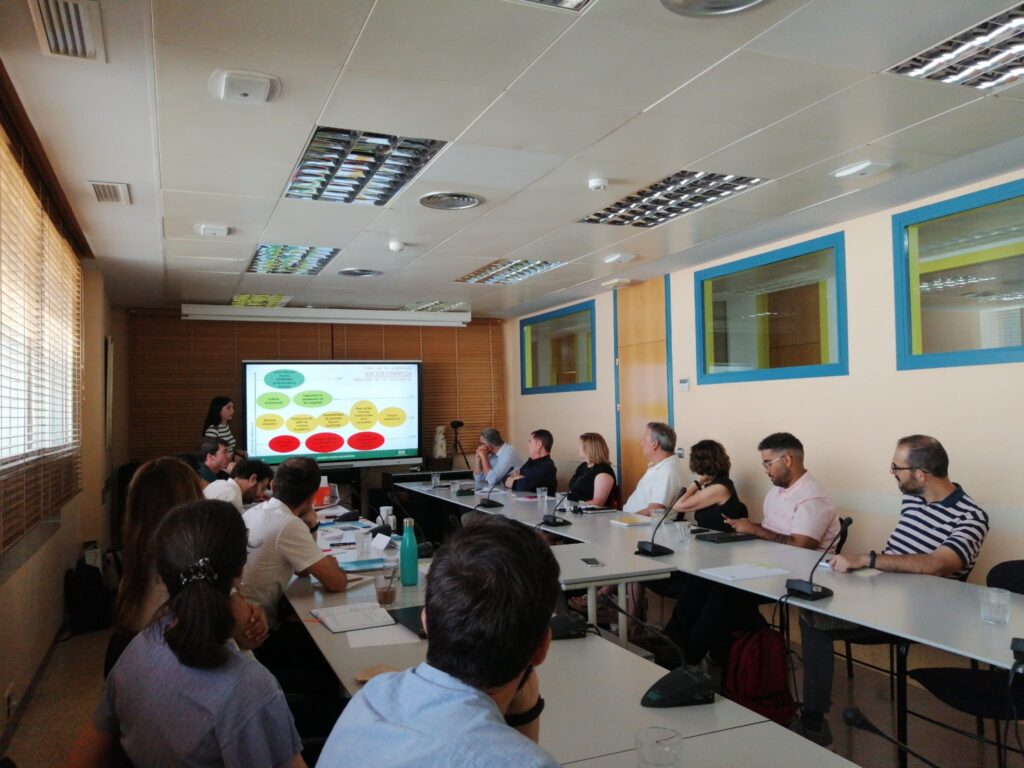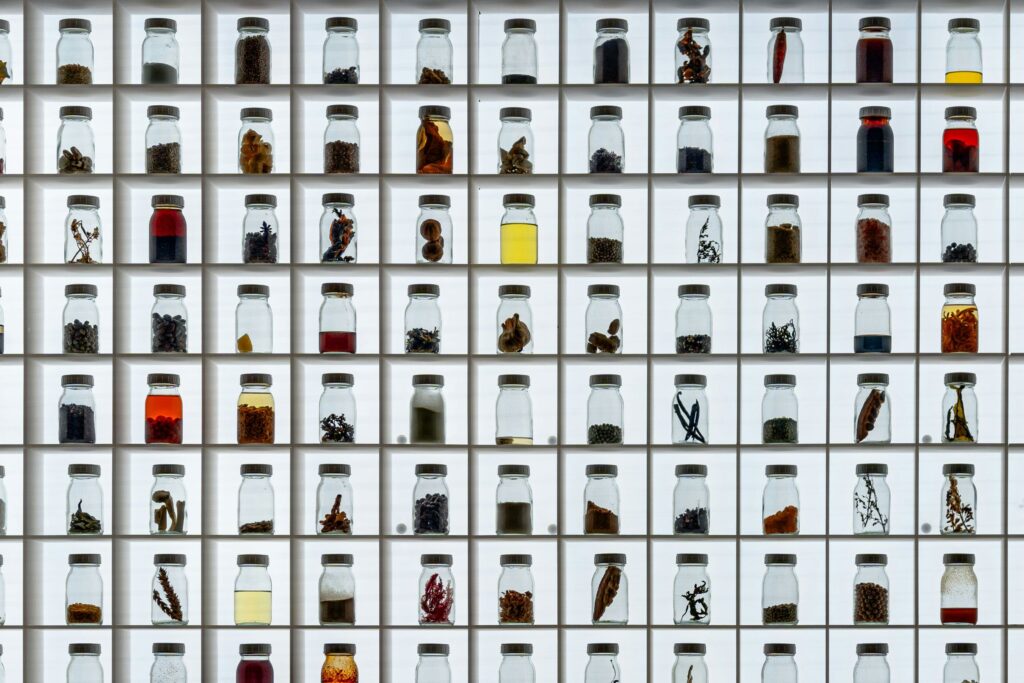More than 20 institutions were present in the co-creation workshop of the Agro2Circular project, where they discussed the challenges and characteristics of a circular economy model for the agri-food sector of the Region of Murcia.
On July 7, Kveloce I+D+i, together with the Polibienestar Research Institute (UV), organized a co-creation workshop at the Instituto de Fomento (INFO) framed in the public participation strategy of Agro2Circular. The workshop was attended by representatives of various sectors: technology centers, universities, companies, public entities and civil society organizations attended the event, contributing their knowledge and experiences from different points of view.
Among the attendees were project partners (CETEC, INFO, Cajamar Foundation, Fundacion Primafrio, GWC, Agrofood, Regenera Levante, Mocitos, Eversia ), accompanied by members of the regional Stakeholder Panel that has been formed at the regional level to co-create a circular economy model for the agro-sector at the regional level (City Council of Alhama de Murcia, Ecologistas en Acción Region of Murcia, AEMA, CETENMA, CIFEA at Molina de Segura and the department of materials science and metal engineering at UPCT.
Prior to the workshop, the attendees had participated in a consultation through questionnaires and interviews on the importance and relevance of different challenges, encompassed in 8 dimensions (environmental, socioeconomic, technological and R+D+i, financial, governance, regulation, standardization, training and education) for the definition of a circular economy model in the Region of Murcia. The opinions collected were analyzed and served as a basis for discussion in the workshop, focused on the definition the conditions that a region must meet in order to be considered to fulfill the criteria of the circular economy in the agri-food sector.
The circular model finally co-created through this workshop and other to organized during the last year of the project will be validated at European level by means of the EU Stakeholder Panel, serving as the basis for a self-assessment tool that will allow regions to determine their degree of preparation to implement the circular economy in the agri-food sector, taking into account environmental, economic and social sustainability criteria.
Share the news:



